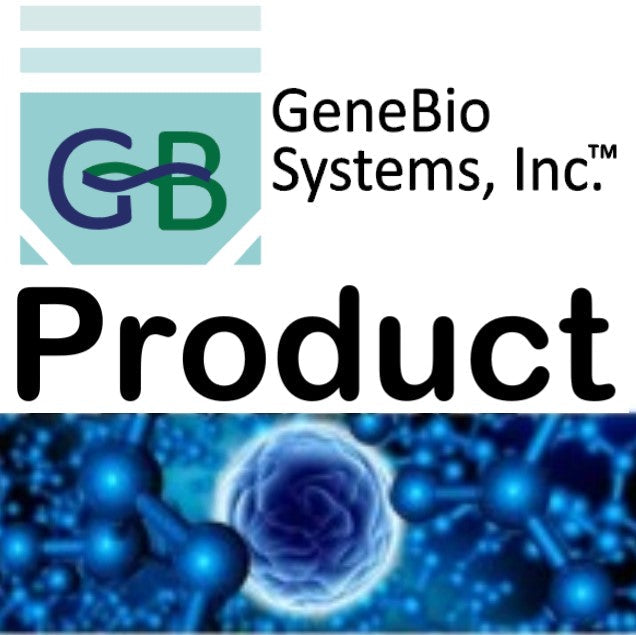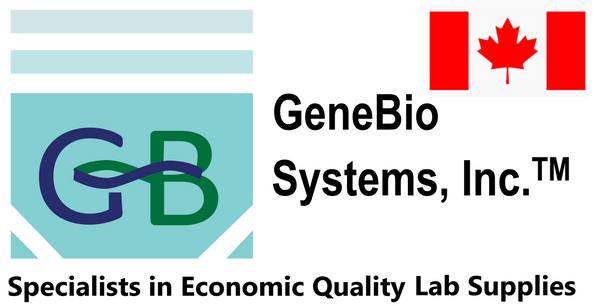Gene Bio Systems
Recombinant Human Potassium-transporting ATPase subunit beta(ATP4B),partial
Recombinant Human Potassium-transporting ATPase subunit beta(ATP4B),partial
SKU:CSB-EP002343HU
Couldn't load pickup availability
Size: 200ug. Other sizes are also available. Please Inquire.
In Stock: No
Lead time: 10-20 working days
Research Topic: Transport
Uniprot ID: P51164
Gene Names: ATP4B
Organism: Homo sapiens (Human)
AA Sequence: CLYVLMQTVDPYTPDYQDQLRSPGVTLRPDVYGEKGLEIVYNVSDNRTWADLTQTLHAFLAGYSPAAQEDSINCTSEQYFFQESFRAPNHTKFSCKFTADMLQNCSGLADPNFGFEEGKPCFIIKMNRIVKFLPSNGSAPRVDCAFLDQPRELGQPLQVKYYPPNGTFSLHYFPYYGKKAQPHYSNPLVAAKLLNIPRNAEVAIVCKVMAEHVTFNNPHDPYEGKVEFKLKIEK
Expression Region: 58-291
Sequence Info: Extracellular Domain
Source: E.coli
Tag Info: N-terminal GST-tagged
MW: 53.6 kDa
Alternative Name(s): Gastric H(+)/K(+) ATPase subunit beta;Proton pump beta chain
Relevance: Required for stabilization and maturation of the catalytic proton pump alpha subunit and may also involved in cell adhesion and establishing epithelial cell polarity.
Reference: The DNA sequence and analysis of human chromosome 13.Dunham A., Matthews L.H., Burton J., Ashurst J.L., Howe K.L., Ashcroft K.J., Beare D.M., Burford D.C., Hunt S.E., Griffiths-Jones S., Jones M.C., Keenan S.J., Oliver K., Scott C.E., Ainscough R., Almeida J.P., Ambrose K.D., Andrews D.T. , Ashwell R.I.S., Babbage A.K., Bagguley C.L., Bailey J., Bannerjee R., Barlow K.F., Bates K., Beasley H., Bird C.P., Bray-Allen S., Brown A.J., Brown J.Y., Burrill W., Carder C., Carter N.P., Chapman J.C., Clamp M.E., Clark S.Y., Clarke G., Clee C.M., Clegg S.C., Cobley V., Collins J.E., Corby N., Coville G.J., Deloukas P., Dhami P., Dunham I., Dunn M., Earthrowl M.E., Ellington A.G., Faulkner L., Frankish A.G., Frankland J., French L., Garner P., Garnett J., Gilbert J.G.R., Gilson C.J., Ghori J., Grafham D.V., Gribble S.M., Griffiths C., Hall R.E., Hammond S., Harley J.L., Hart E.A., Heath P.D., Howden P.J., Huckle E.J., Hunt P.J., Hunt A.R., Johnson C., Johnson D., Kay M., Kimberley A.M., King A., Laird G.K., Langford C.J., Lawlor S., Leongamornlert D.A., Lloyd D.M., Lloyd C., Loveland J.E., Lovell J., Martin S., Mashreghi-Mohammadi M., McLaren S.J., McMurray A., Milne S., Moore M.J.F., Nickerson T., Palmer S.A., Pearce A.V., Peck A.I., Pelan S., Phillimore B., Porter K.M., Rice C.M., Searle S., Sehra H.K., Shownkeen R., Skuce C.D., Smith M., Steward C.A., Sycamore N., Tester J., Thomas D.W., Tracey A., Tromans A., Tubby B., Wall M., Wallis J.M., West A.P., Whitehead S.L., Willey D.L., Wilming L., Wray P.W., Wright M.W., Young L., Coulson A., Durbin R.M., Hubbard T., Sulston J.E., Beck S., Bentley D.R., Rogers J., Ross M.T.Nature 428:522-528(2004)
Purity: Greater than 90% as determined by SDS-PAGE.
Storage Buffer: Tris-based buffer,50% glycerol
Storage: The shelf life is related to many factors, storage state, buffer ingredients, storage temperature and the stability of the protein itself. Generally, the shelf life of liquid form is 6 months at -20℃/-80℃. The shelf life of lyophilized form is 12 months at -20℃/-80℃.
Notes: Repeated freezing and thawing is not recommended. Store working aliquots at 4℃ for up to one week.


